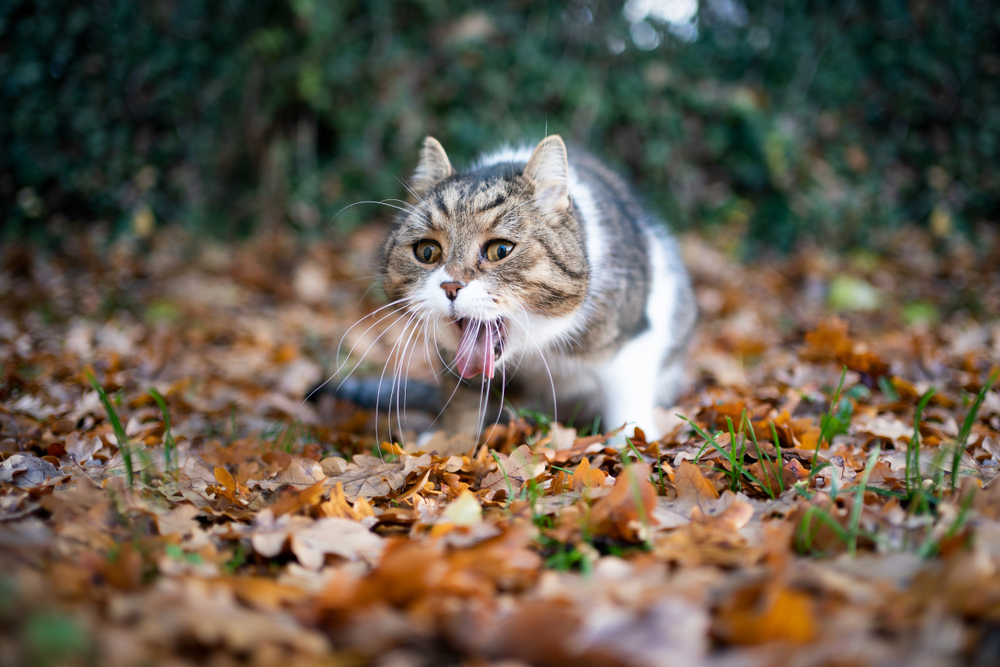What Causes Cat Vomiting?
Most cat owners know the sight and sound of a cat getting ready to vomit. The hacking and gagging, along with the strange posture and backing up of the body, are indications of an impending hairball. In addition to hairballs, a cat will eat their food a little too greedily and vomit afterward. These are occasional, but when a cat is vomiting more often, there’s reason for concern.
Before you diagnose with Dr. Google, please call us for a visit. Chronic cat vomiting should be addressed to ensure your feline friend’s health and well-being, and we can help you zero in on a cause and prescribe the right treatment.
Why is your cat throwing up? Here are some common reasons…
Hairballs – Cats are fastidious groomers. During this process, they ingest hair. In most cases, the hairs go through the digestive tract, but occasionally they form a small, oblong glob of fur, undigested food, and stomach fluids, which causes your cat to vomit it up. Most healthy felines don’t have many hairball episodes, so alert us if your pet has more than a few per year.
Toxicity – If your cat ingests a toxic substance, including medications and plants, one of the symptoms can be vomiting. Ongoing vomiting after your cat ingested something they shouldn’t have is considered a veterinary emergency. Other signs of toxicity in cats are restlessness, drooling, disorientation, heart rate fluctuations, and collapse.
Allergies – If your cat is allergic to a type or types of ingredients in food, this can cause vomiting, diarrhea, and other digestive issues. Not so uncommon are food allergies in cats. You may choose to wean your pet off of their current diet slowly and introduce another form of diet with a new protein source (i.e., beef or salmon rather than chicken).
Parasites – Some internal parasites like roundworms, tapeworms, and hookworms cause a cat to throw up. It is important that your cat be tested for intestinal worms by providing a fecal sample to your veterinarian during their visit.
Foreign body – If your cat is attempting to vomit, appears to be choking, or is struggling to eat or swallow water, they may have ingested something inedible. Foreign bodies can create a dangerous block in the digestive tract. This should be treated as an emergency.
Disease – Vomiting is a symptom of several diseases that affect cats. These include diabetes, hyperthyroidism, kidney disease, cancer and/or masses, and inflammatory bowel disease. Since there is a wide range of possibilities when your cat has repeated vomiting, please consult with us to get the correct diagnosis and treatment.
You can also gain clues by the appearance of your cat’s vomit.
Why Is My Cat Throwing Up? What Should I Do?
Why is your cat throwing up? There could be a variety of reasons, so if you are concerned about your cat’s health, we suggest you call us for an appointment to get to the bottom of the problem. Chronic or excessive vomiting can lead to dehydration and discomfort for your pet. It’s best to get the right diagnosis soon, so we can get your kitty back to their healthy and happy self fast.

